Epsilon Carbon Deploys LNG Tankers To Cut Supply Chain Emissions
- By MT Bureau
- August 20, 2025
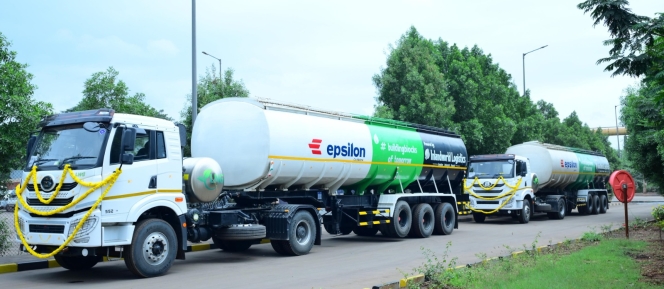
Epsilon Carbon, a leading producer of carbon black and speciality carbon products, has rolled out a dedicated fleet of eight LNG-powered tanker trucks to transport coal tar. The company claims it is the first in India’s coal tar industry to adopt LNG vehicles for inbound logistics.
The new fleet is expected to reduce logistics-related emissions while improving efficiency and reliability in raw material movement. According to the company, the LNG tankers will cut carbon dioxide emissions by 20–25 percent, nitrogen oxides by up to 90 percent and almost eliminate particulate matter emissions compared with diesel trucks. They are also projected to deliver 5–10 percent better fuel efficiency, lowering operational costs over the long term.
This development follows Epsilon’s earlier introduction of electric trucks in 2023 and LNG containers in July for customer-bound carbon black logistics. Together, these initiatives form part of the company’s broader strategy to decarbonise its operations and build a low-carbon logistics model.
Vikram Handa, Managing Director, Epsilon Carbon, said, “Road logistics is central to India’s economy, and as one of the largest players in our sector, we recognise the responsibility to make it cleaner and more efficient. At Epsilon Carbon, sustainability is core of how we operate and grow. The introduction of our LNG-powered tankers is a transformative step in advancing raw material logistics, reducing emissions, and driving long-term value for our stakeholders. With this initiative, we are not just keeping pace with environmental expectations but are setting new standards for sustainable freight movement and contributing meaningfully to India’s Net Zero 2070 journey.”
Each tanker has an operational range of about 730 kilometres, making it well-suited for long-distance coal tar transportation. The company plans to progressively expand its LNG tanker fleet in line with capacity requirements, reinforcing its commitment to sustainability and compliance with tightening environmental regulations.
- Kraton
- Speciality Polymers
- ISCC Plus Certification
- International Sustainability and Carbon Certification
Kraton Achieves ISCC PLUS Certification For Panama City Facility
- By TT News
- January 30, 2026
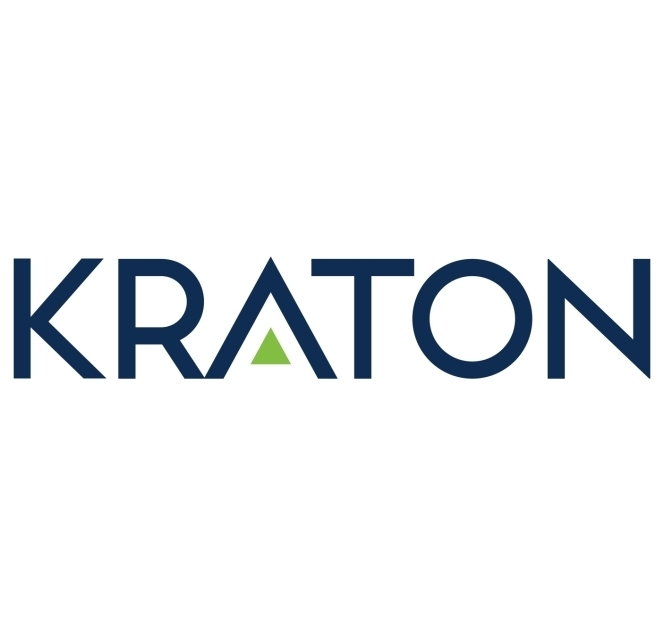
Kraton Corporation, a leading global producer of speciality polymers and high-value bio-based chemicals derived from pine wood pulping co-products, has achieved International Sustainability and Carbon Certification (ISCC) PLUS for its manufacturing facility in Panama City, Florida, United States. This independent certification tracks sustainable materials via a mass balance approach. The achievement allows Kraton to issue a formal ISCC PLUS Sustainability Declaration with shipments of its biobased polyterpene resins, providing its customers with the documentation needed to validate the renewable content in their own products.
The Panama City site becomes the company’s fourth production plant to gain this certification, building upon a commitment that started with the certification of its Sandarne, Sweden, facility in 2021. By securing these certifications across its network, Kraton strengthens its leadership in supplying circular and renewable solutions. This effort supports broader industry shifts, as customers can now more seamlessly integrate verified, sustainable materials into their supply chains and end products.
Ultimately, the company’s pursuit of such certifications aligns with a larger transition towards a more sustainable and circular economy, demonstrating how specialised chemical producers can enable tangible environmental progress through verified chain-of-custody systems.
Lana Culbert, Kraton Pine Chemicals VP of Marketing, said, “Our SYLVARES™ and SYLVATRAXX™ brands feature a portfolio of high-performance polyterpene resins. They are widely recognised for their use in adhesives and tyre applications, yet their versatility extends to other industries, like agriculture, with more opportunities ahead. While we can measure bio-based content of our pine chemicals using Carbon-14 analysis, certifying our Panama City facility under ISCC PLUS strengthens supply chain transparency, supporting the growth of the circular economy.”
Solvay Opens Europe’s First Bio-Circular Silica Facility In Italy
- By TT News
- January 30, 2026
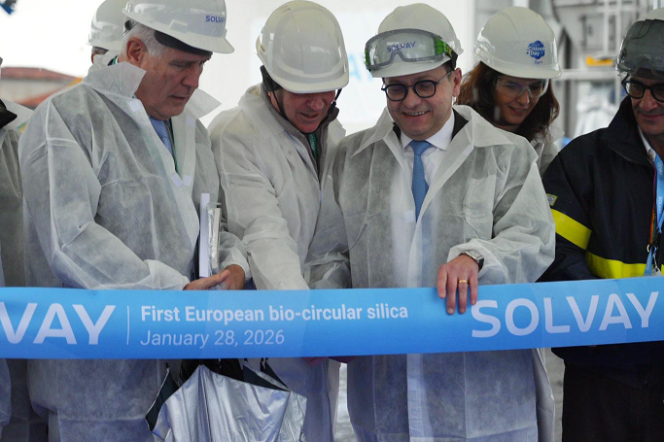
Solvay has inaugurated its new bio-circular silica facility at its plant in Livorno, Italy, a strategic investment that underscores Italy’s industrial leadership in green innovation. The facility directly anticipates evolving EU sustainability rules for tyres and supports the ambitious environmental goals of Solvay’s customers. By establishing this operation, Solvay positions itself as a proactive partner in achieving the objectives of the European Green Deal and upcoming product regulations.
The site manufactures highly dispersible silica using an innovative process that transforms rice husk ash, an agricultural byproduct, into a valuable bio-based raw material. This method creates a local circular economy, benefits the agricultural sector, and reduces associated CO₂ emissions by 35 percent compared to conventional production.
This initiative is a cornerstone of Solvay's global strategy to transition all its silica production to certified circular raw materials by 2026. While the Livorno site is the first to use rice husk ash, other global plants will utilise different local waste streams. For the tyre industry, adopting this circular silica already enables tyres to contain up to 15 percent recycled or renewable content, providing significant progress towards the sector’s 2030 material targets.
Beyond compliance, the silica produced is essential for developing energy-efficient tyres that lower rolling resistance, thereby reducing fuel consumption and extending electric vehicle range. The Livorno facility thus reinforces Solvay's market leadership in sustainable silica and highlights Italy’s vital role in the company’s broader portfolio of green investments, including projects in green hydrogen and circular soda ash.
Philippe Kehren, CEO, Solvay, said, “By acting now, Solvay is helping tyre manufacturers prepare for future EU requirements and meet their own sustainability goals. Livorno is a tangible example of how we turn circular economy principles into industrial reality, enabling progress for generations.”
Jana Striezel, Head of Purchasing at Continental Tyres, said, "Solvay has managed to transform an agricultural byproduct into a high-performance material on an industrial scale. We are looking forward to integrating more and more rice husk ash silica as a recycled material in our tyre production and are very satisfied with its performance. We are keen on innovative, renewable and recycled materials because they support our ambitious sustainability roadmap.”
An Nuyttens, President of Solvay’s Silica business, said, “Livorno sets a benchmark for circular innovation in Europe and beyond. Our goal is clear: wherever Solvay produces silica, we will integrate circular materials to reduce environmental impact and support our customers’ sustainability objectives.”
Ecolomondo Achieves Record Tyre Recycling Milestone
- By TT News
- January 30, 2026
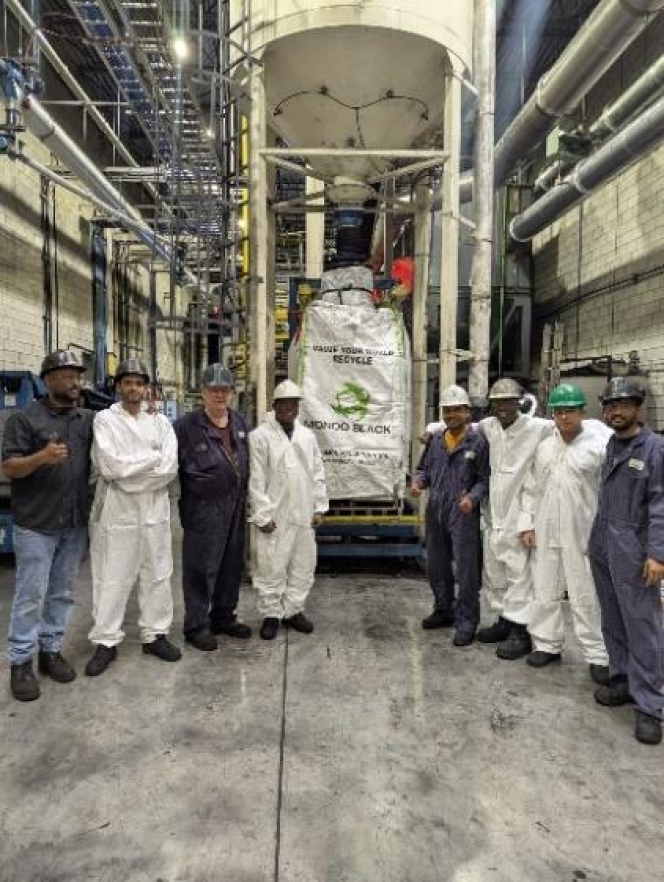
Ecolomondo Corporation, a Canadian developer of sustainable technology for recycling scrap tyres, has announced that its Hawkesbury facility reached a key operational milestone during the week of 12 January 2026, by successfully completing a record five double processing batches. This progress signifies a major step forward as the company advances towards full commercial production at the plant. Utilising its proprietary Thermal Decomposition Process (TDP) and a new automated Human-Machine Interface system, the facility maintained consistent operations and produced high-quality recovered materials.
The week’s activity led to the recycling of an estimated 9,375 scrap tyres, processing a total of 150,000 pounds (approximately 68,038 kg) of rubber feedstock. From this, approximately 60,000 pounds (approximately 27,215 kg) of recovered carbon black and 75,000 pounds (approximately 34,019 kg) of tyre-derived oil were generated, alongside syngas used to power the process itself.
As a Canadian leader in tyre recycling technology, Ecolomondo views these results as a strong validation of the scalability and reliability of its proprietary TDP system, underscoring the ongoing ramp-up at its Hawkesbury TDP facility. This consistent performance enhances the company's position in the circular economy, turning a challenging waste stream into valuable industrial commodities and demonstrating the commercial viability of its innovative approach.
- Association of Natural Rubber Producing Countries
- ANRPC
- Natural Rubber
- Monthly NR Statistical Report
ANRPC Publishes Monthly NR Statistical Report For December 2025
- By TT News
- January 29, 2026
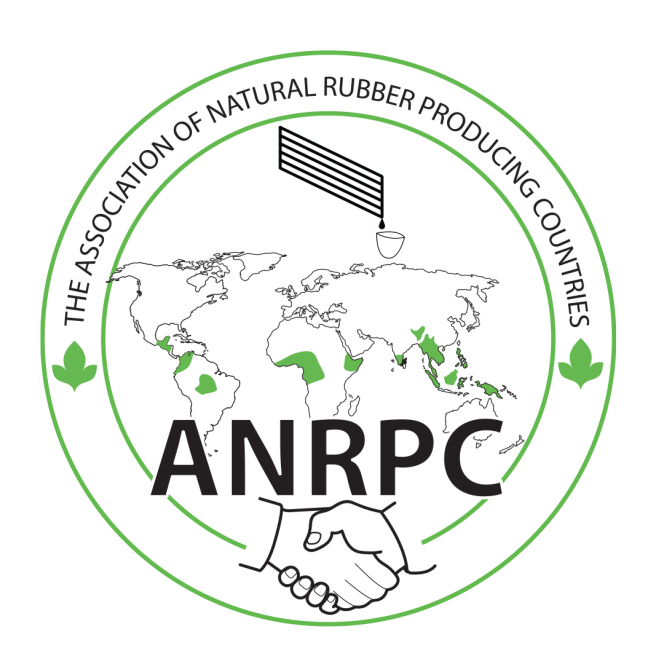
The Association of Natural Rubber Producing Countries (ANRPC) has released its Monthly NR Statistical Report for December 2025, providing an overview of key developments in the global natural rubber sector.
As per the report, the natural rubber market is positioned in a strategic accumulation phase that belies superficial price indicators. A critical analysis reveals that while US Dollar-denominated prices showed a slight pullback, this was overwhelmingly due to the appreciation of the Thai Baht rather than a decline in intrinsic value. In Thailand, a key producing nation, local currency (THB) prices remained fundamentally firm, underscoring a resilient domestic price floor that continues to support the long-term upward trend.

This underlying market strength is concretely evidenced by price movements in Malaysia. During the reported period of consolidation, Malaysian SMR-20 prices increased by 2.08 percent and latex prices rose by 2.35 percent. These gains in a major producing hub directly contradict a bearish narrative and confirm that underlying global demand continues to outpace available supply. The current market behaviour is therefore characterized as a ‘cumulation pullback’, a necessary corrective foundation following earlier strong gains, designed to build liquidity before the next advance.
Fundamental data supports this outlook. Global natural rubber production for 2025 is anticipated to grow by a modest 1.4 percent. Although the latest demand figures show a marginal adjustment of -0.7 percent, overall market sentiment remains resilient, bolstered by clear recovery signals from the tyre industry. Critically, the market is now entering the seasonally tight ‘wintering’ period from February to May, when latex production naturally declines. The consolidation and strategic accumulation observed in December 2025 have thus established a solid platform. With supply set to contract and demand holding firm, all conditions are aligned for a sustained price rally as the market moves into early 2026.







Comments (0)
ADD COMMENT